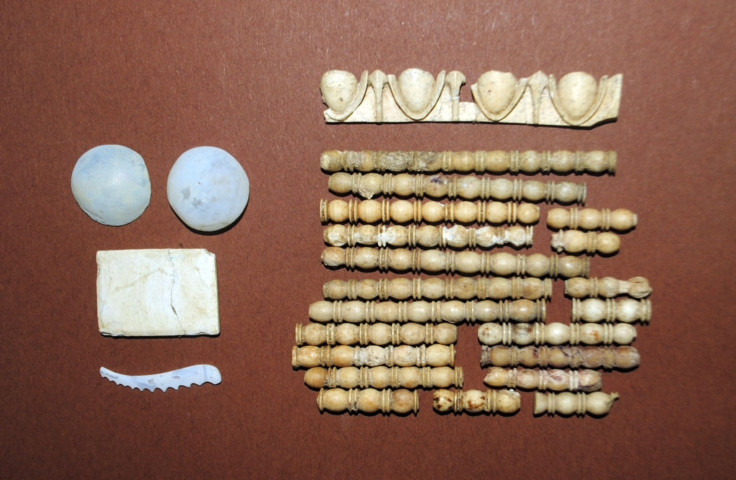First Trace Of Human Remains Found In Alexander The Great Era Tomb

An ancient skeleton was recovered from a massive Greek tomb which archaeologists say dates back to the era of Alexander the Great, the Greek Ministry of Culture announced on Wednesday. Excavators believe the skeleton belongs to an individual who was once a “distinguished public figure,” based on its extravagant surroundings, according to the BBC News.
“The tomb in all probability belongs to a male and a general,” chief archaeologist Katerina Peristeri told BBC News. The skeleton, found inside a decorated wooden casket, is the first trace of human remains unearthed at this late fourth-century B.C. site, called Amphipolis. Although most of the remains were found inside the coffin, some were found dispersed within the chamber, which tells archaeologists the grave had been looted.
The latest discovery raises speculation about the identity of the deceased and whether the tomb belongs to a family connected to Alexander the Great of Macedonia. “It is an extremely expensive construction, one that no single private citizen could have funded,” the Greek Ministry of Culture reportedly said at a press conference on Wednesday. “It is in all probably a monument to a mortal who was worshipped by his society at the time.”
Amphipolis, which was an ancient Greek city in Macedonia, was first discovered by Peristeri and her team in August and it is the largest grave site ever uncovered in Greece. In addition to the skeleton, excavators have unearthd other fascinating finds including a carved stone lion, sphinxes, caryatids and a large mosaic floor portraying the kidnap of Persephone by Hades, according to earlier reporting from the BBC News.
Alexander the Great was born in an ancient Macedonian city within Greece in 356 B.C. and conquered many lands in his lifetime. At the time of his death in 323 B.C., his kingdom stretched from the Mediterranean to India’s border, according to the Ancient History Encyclopedia.
© Copyright IBTimes 2024. All rights reserved.





















